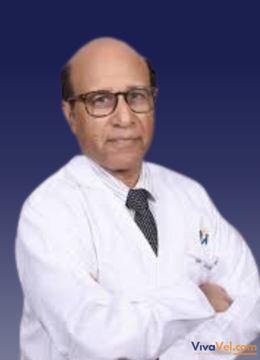info@vivavel.com
+919818262686
+919818262686
 info@vivavel.com
info@vivavel.com +919818262686
+919818262686Early detection and management are essential to prevent severe complications associated with this condition.
 Many people with carotid artery stenosis do not experience noticeable symptoms until the narrowing becomes severe. However, some signs and symptoms may include:
Many people with carotid artery stenosis do not experience noticeable symptoms until the narrowing becomes severe. However, some signs and symptoms may include:
If any of these symptoms occur, seek medical attention immediately.

 Carotid artery stenosis is primarily caused by atherosclerosis, in which fatty deposits (plaque) build up in the artery walls. Other contributing factors may include:
Carotid artery stenosis is primarily caused by atherosclerosis, in which fatty deposits (plaque) build up in the artery walls. Other contributing factors may include:
 If you experience symptoms indicative of carotid artery stenosis, it's essential to consult a healthcare professional. A doctor can thoroughly evaluate you and determine whether further diagnostic tests or treatments are necessary.
If you experience symptoms indicative of carotid artery stenosis, it's essential to consult a healthcare professional. A doctor can thoroughly evaluate you and determine whether further diagnostic tests or treatments are necessary.
 To diagnose carotid artery stenosis, doctors may recommend the following tests:
To diagnose carotid artery stenosis, doctors may recommend the following tests:
 Do’s:
Do’s:
 Don’ts:
Don’ts:
NOTE:
Our medical content authors have diligently gathered and synthesized information on this topic to offer valuable insights to our readers. Drawing from a range of reputable medical journals and health resources, this content aims to enhance understanding of the subject. It's important to remember that while this information is informative, it should not replace personalized consultation or treatment from a qualified physician. For further details, please refer to our Editorial Policy.
For this topic, our authors used some of the following resources:





![]() Pusa Road, Radha Soami Satsang, Rajendra Place New Delhi, 110005 India
Pusa Road, Radha Soami Satsang, Rajendra Place New Delhi, 110005 India



![]() Mussoorie, Diversion Road, Dehradun, Uttarakhand 248001
Mussoorie, Diversion Road, Dehradun, Uttarakhand 248001




![]() Rao Saheb, Achutrao Patwardhan Marg, Four Bungalows, Andheri West Mumbai, 400053 India
Rao Saheb, Achutrao Patwardhan Marg, Four Bungalows, Andheri West Mumbai, 400053 India



![]() B Block, Sushant Lok 1, Near Huda City Centre, MF Husain Marg, Sector 43 Gurgaon, 122001 India
B Block, Sushant Lok 1, Near Huda City Centre, MF Husain Marg, Sector 43 Gurgaon, 122001 India
_3.png)


![]() Manipal Hospital Bangalore, 560017 India
Manipal Hospital Bangalore, 560017 India



![]() Hospital Plot, Road No. 201, Dwarka Sector-3, Dwarka, New Delhi, 110075 India
Hospital Plot, Road No. 201, Dwarka Sector-3, Dwarka, New Delhi, 110075 India


Dr. Z.S. Meharwal is the Chairman and Head of the adult Cardiac Surgery, Heart Transplantation, and VAD program at Fortis Escorts Heart Institute. He is part of the i...

Dr. Shiv Kumar Choudhary has built a prestigious career in cardiovascular and thoracic surgery and is a highly renowned cardiac surgeon. He serves as the Executive Di...

Dr. Jaisom Chopra is a highly skilled vascular surgeon renowned for his extensive experience in both domestic and international medical practices. After completing hi...

Over the past 25 years, Dr. Rakesh Mahajan has been instrumental in developing the Department of Vascular Surgery at Indraprastha Apollo Hospitals, New Delhi, into one of the...


Treatment Plan & Cost within 2 days
